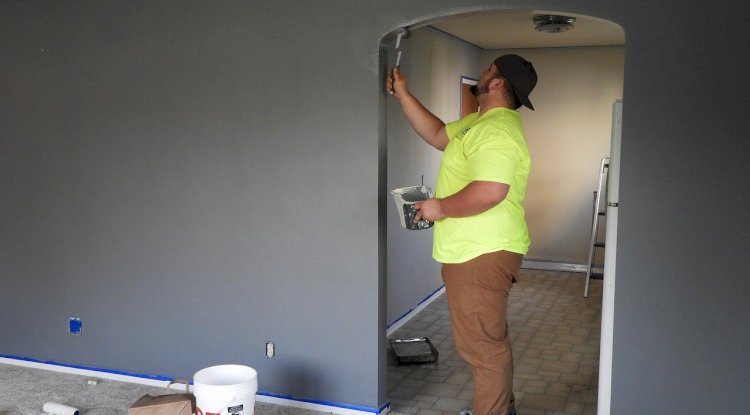How to evict tenants based on tenant rights in India?
How to evict tenants based on tenant rights in India?

Evicting a tenant may be a large pressure for a landlord if the stated tenant isn't paying the rent or now not vacating the property. But, the eviction of a tenant by way of the landlord are laid down by diverse country laws in India. So allow's discover the approaches a landlord can legally evict a tenant thru a justifiable and valid motive for doing so.
Locating a tenant is straightforward, and is one of the most handy approaches to earn money, but, someone takes a large chance in lending out his belongings to a stranger. Specifically, now and again, in terms of the state of affairs wherein you want to evict the tenant who is neither paying the hire nor vacating the property. These days, landlords take excessive precautions to keep away from such conditions and are well-versed with the rules and policies regarding the condo laws, rights of landlords and tenants in India noted underneath the hire manage Act surpassed by using the authorities of India in 1948. This Act changed into implemented with the aid of the state Governments to adjust the leases of the properties and evictions of the tenants. Below this Act, a lease settlement wishes to be signed among the landlord and the tenant declaring the info of the rented assets, the lease period, month-to-month rent quantity and the parties involved.
Table of Content:
- Reasons for eviction of Indian tenants
- How to cancel the foreclosure rights of Indian tenants?
- How to avoid illegal eviction in India?
- What if the tenant doesnot pay the rent?
Reasons for eviction of Indian tenants
If there are legitimate and compelling reasons, Indian tenancy laws allow homeowners to initiate eviction proceedings against tenants. The reasons for eviction of tenants in India are:
- The tenant deliberately fails to pay the agreed amount. ... a lease agreement that is more than 15 days after the end of the lease period.
- The tenant sublet the leased property to others without the owner's consent or written request.
- Any behavior of tenants will result in loss of property value or use.
- The lessee deliberately denied the owner's ownership of the leased property for unknown reasons.
- The landlord needs his property as his residence or family member.
- The landlord needs his property to be repaired and renovated.
- The landlord intends to build another building that needs to demolish the property.
How to cancel the foreclosure rights of Indian tenants?
After setting up the grounds for the eviction, the subsequent process desires to be followed:
- Send evacuation notice to tenants: The eviction notice must be submitted to the competent court stating the reason for the evacuation and the time and date the tenant must evacuate the apartment, and then sent to the tenant to evacuate the rental property. Tenants can free up a reasonable amount of time to rent out the property. In most cases, tenants will leave the rented space after receiving judicial notice.
- Submit an eviction notice: After receiving the notice of eviction from the court, the lessee can refuse to vacate the rented property and object to the evacuation. In this case, the landlord can hire a lease attorney to bring an eviction lawsuit against the tenant. Before the civil court responsible for renting out property.
- Final Eviction Notice: The court listened to the opinions of both parties and issued a legally binding notice of eviction to the tenant based on the arguments and evidence presented. The tenant must release the rented property after the court finally leaves.
This is the tenant eviction procedure in India, but it is difficult to evict the tenant without a lease because there is no evidence that the leased property has been transferred to the tenant.
How to avoid illegal eviction in India?
As per the Supreme Court of India homeowners cannot cancel tenants who regularly pay rent for at least 5 years, unless the landlord really needs their own property. There are other things to avoid when signing a tenant. For example: the lease must be drawn up with the help of a real estate lawyer and contain relevant provisions on the use of the property, the termination of the lease, the amount of rent, etc. The lease can only last for 11 months and includes an optional extension clause. Providing safe guard against the complications in future. The reason for evacuation must be explained in accordance with the lease laws of the state where the property is located. The landlord must not take any inappropriate evacuation measures, such as shutting off basic services such as electricity or water, disrupting the locking mechanism of the rental property, disposing of the rental property from the rental property or penalizing it by itself. If found guilty of such behavior, the tenant has the right to sue the landlord. The landlord doesnot have the right to terminate the tenant without submitting an eviction notice. Before renting out the property to others, it is necessary to conduct a background check.
What if the tenant doesnot pay the rent?
Ideally, the lease agreement should include a non-payment clause.. However, failure to pay the rent due is one of the most common reasons for tenants being evicted by state tenancy laws. Regarding the tenants, the rent payable, the requirements for the tenants to obey or release, and the actions to be taken if the tenants do not respond in any way.
Also Read: Why a Police Screening of Tenants is Necessary and How it is Carried Out?
What's Your Reaction?




















